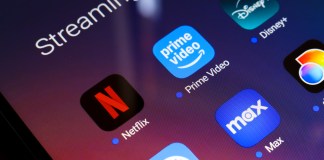For the first time in three decades, the American Academy of Pediatrics (AAP) has issued vaccine recommendations that significantly diverge from those by the Centers for Disease Control and Prevention (CDC).
The AAP’s 2025 immunization schedule, released Tuesday, recommends that all children ages 6 to 23 months receive a COVID-19 vaccine, unless they have an allergy to the vaccine or its ingredients.
For children ages 2 through 18, the AAP advises a single-dose shot if they:
- Are at high risk of severe illness
- Live in long-term care facilities
- Have never been vaccinated
- Live with household members who are at high risk
For healthy children ages 6 months to 17 years, the federal agency says vaccination should be a matter of “shared clinical decision-making,” rather than a standard recommendation.
Both the pediatricians and the CDC recommend COVID shots for children with underlying medical conditions that put them at risk of severe COVID-19.
Why AAP Recommends the COVID Vaccine for Children 6 Months to 2 Years Old
AAP leaders say their decision to recommend the COVID vaccine for young children reflects the latest scientific evidence.
“Infants and toddlers remain at the highest risk of hospitalization and severe illness from COVID-19,” says David Higgins, MD, a spokesperson for AAP, pediatrician at Children’s Hospital Colorado, and assistant professor of pediatrics at the University of Colorado School of Medicine in Anschutz.
Key findings that back the pediatrician group’s recommendation:
- Only 3.8 percent of the hospitalized children were up to date with the recommended COVID vaccine.
- Nearly half the children (44.7 percent) were 6 to 23 months old.
Sharon Nachman, MD, a professor of pediatrics and chief of pediatric infectious diseases at Stony Brook Children’s Hospital in New York, agrees with the AAP recommendation.
Unlike older children who have likely been exposed or infected with COVID-19 or gotten the vaccine, very young children don’t have that protection, says Dr. Nachman.
“Maternal COVID antibodies really wane quite quickly, and young children under 2 years old are at highest risk. Those are the kids who often wind up in the emergency room and admitted to our hospitals when they get a respiratory infection,” she says.
Why Did the CDC Change Its COVID Vaccine Recommendations?
The decision to remove the COVID-19 vaccine from the CDC’s recommended immunization schedule is “part of the Trump administration’s commitment to common sense,” says Paul Prince, a CDC spokesperson.
“As Commissioner Makary said, ‘There’s no evidence healthy kids need it today, and most countries stopped recommending it for children,’” says Prince, quoting a statement by Marty Makary, MD, commissioner of the U.S. Food and Drug Administration and a Kennedy appointee.
Prince adds that the U.S. Department of Health and Human Services and the CDC remain committed to gold-standard science and to ensuring the health and well-being of all Americans, especially the nation’s children.
RFK Jr. Accuses AAP of Being Influenced by Big Pharma
After the AAP released its own vaccine recommendations, Kennedy fired back on the social media platform X, sharing a screenshot of AAP’s top donors that includes vaccine makers, and accused the organization of being angry that the CDC has eliminated corporate influence in decisions over vaccine recommendations.
AAP responded to these accusations in a statement by its president, Susan J. Kressly, MD.
Nachman says these allegations about AAP are unfounded. “The AAP has a long track record of producing excellent science and recommendations based on science. There’s no issue that the AAP guidelines are conflicted in any way of getting money from pharma or anything like that. They’re science based, and they’re data based,” she says.
What Parents Should Know
With two major authorities offering different guidance, parents may be confused about whether to get their child vaccinated against COVID-19.
Higgins advises following the AAP guidance: “Vaccines are essential for keeping children healthy and able to do the things kids should be doing, such as learning, playing, and thriving. Your pediatrician knows your child best and is the right person to talk to if you have questions. Families can trust that AAP recommendations are based only on evidence and our deep commitment to children’s health,” he says.
If you are confused or scared about vaccinating your child, Nachman also recommends talking with your child’s doctor.
Will Insurance Pay for COVID Vaccines for Children?
It’s possible that the CDC’s current recommendations may affect vaccine insurance coverage and availability, says Higgins.
“This is a real concern,” he says. “Children risk losing access to important vaccines.”
Prince says the federal Vaccines for Children program (which provides free immunizations when families are unable to pay) will continue to cover COVID-19 shots for eligible children when the parent and healthcare provider decide vaccination is appropriate. “Medicaid will continue to reimburse the administration fee,” he says.
The question, Higgins says, is whether healthy children will be considered eligible.
“The AAP is already engaging with private insurers and policymakers to ensure our evidence-based recommendations are covered, and we will continue to advocate to make vaccines accessible to every child in every community,” says Higgins.
Great Job Becky Upham & the Team @ google-discover Source link for sharing this story.





